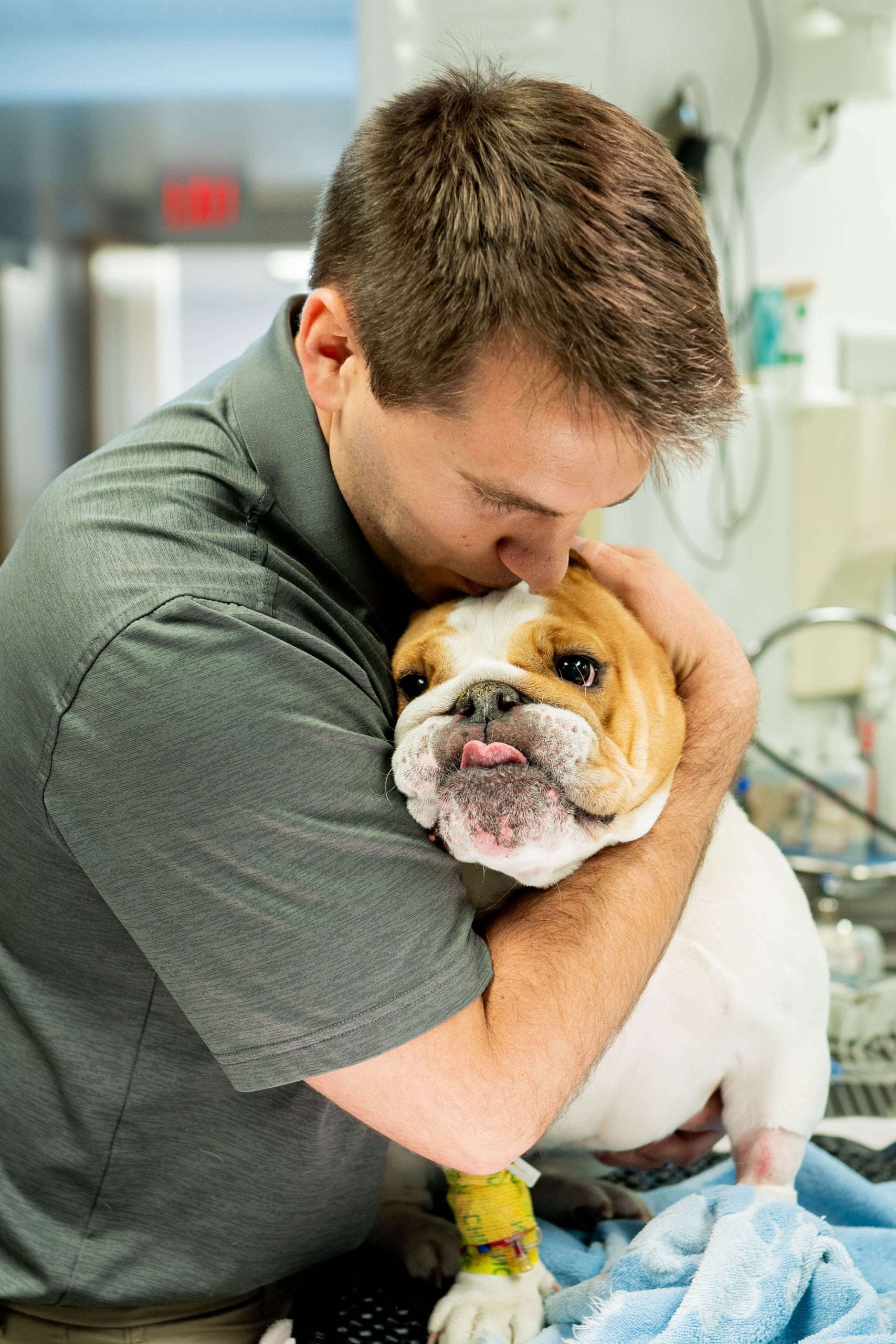One of the questions we most often hear pertains to spaying and  neutering pets. How much will it cost? Does it matter if I take my pet somewhere cheaper for the surgery? It seems routine, is it really a big deal?
neutering pets. How much will it cost? Does it matter if I take my pet somewhere cheaper for the surgery? It seems routine, is it really a big deal?
Cost
At our office, a spay or neuter can range from $135 to $250. The price depends on the type of pet you have, its weight, the amount of anesthesia needed, and pain medications sent home after surgery. Pet owners are also offered the option to have pre-anesthetic blood work completed before the surgery. This blood work helps to detect any illnesses that may cause complications during surgery.
When it comes to the price, some pet owners will elect to have the spaying or neutering surgery done at places that offer the services for a much lower price, such as traveling veterinarians or local humane societies and shelters. While this option is both viable and safe, it is best to look at the value of the surgery in comparison to the price.
Them vs. Us
Keeping in mind that both options for surgery are viable and safe, clients should be aware of the differences in value and quality. Having a surgery such as spaying and neutering is not only a milestone in a pet’s life, it is routine in most veterinary offices. Like traveling veterinarians, shelters and humane societies, as well as spay and neuter clinics, it is just another day at the office. However, compared to these other options, having your pet’s surgery done with its regular vet offers some extra perks.
- Anesthesia Monitoring— At our hospital, the doctor is not the only person involved in the surgery. With each surgery, the doctor is paired with an assistant who monitors your pet’s vitals and anesthesia during surgery, which may or may not be the case at most spay and neuter clinics.
- AAHA Accredited— Here at Central Veterinary Hospital, we pride ourselves on being AAHA accredited. This means that we follow a certain set of standards and policies that other hospitals may not observe, such as surgical standards and cleanliness. Click here to learn more.
- Pain medication— While most alternate spaying and neutering options will give your pet an injection of an anti-inflammatory before they leave to go home, they will cut costs by not sending any pain medication home with your pet. Here, our surgeries cost more because we not only give your pet an anti-inflammatory injection before they leave, but we also most often send home oral medications to ensure that the healing process is as comfortable and painless as possible.
- Pre-Operative blood work– At our location, we offer pre-operative blood work. This blood work looks for factors that can cause complications with anesthesia. It tests for congenital defects, blood sugar and protein levels, kidney and liver enzymes, red and white blood cell counts, and helps to ensure the lowest risk associated with the surgery.
- IV fluids– It is routine at our hospital to administer IV fluids during surgery. This serves to control your pets blood pressure while under anesthesia and keep them hydrated.
- Warming devices– During surgery, your pet’s temperature can fluctuate and drop. To prevent this from adversely affecting your pet, we use warming devices during surgery such as hot water blankets, as well as in their cages after surgery to aid in recovery.
Spay and neuter clinics are able to offer their services for much less, as they usually only perform the surgeries with necessities and do not use the same resources as a veterinary hospital. Their cost of labor is usually much lower, as they have fewer staff members participating in the surgery. They may spend less on the products used, including sutures, and administer a healthy dose of anti inflammatory through an injection before the patient is sent home, instead of sending them with oral anti inflammatory medication for pain management. They also often do not utilize IV fluids, methods of temperature control, anesthesia monitoring, and do not offer pre-operative blood work. Shelters and humane societies are also given government subsidies and donations to help in their operation, which helps to keep the prices for their services low.
While this may sound like a large gap in the quality of the service, know that these budget surgeries are generally safe. Dr. Martin offers, “The surgeons that practice them are fully capable and qualified, and we have complete faith in their abilities.” According to Dr. Keele, the only difference between having the surgery done at one of their locations or with your regular vet is usually the quality of the resources and the number of resources available. Dr. Keele says, “The best option no matter what is to get the pet spayed and neutered. If [using a spay and neuter clinic] is the best option for you and your family, I support it.”
To each their own
While there are many differences between having a surgery done with your regular veterinarian and having a surgery done at a lowbudget location, there is no denying that no matter what you choose, you are making the humane choice to spay or neuter your pet. You are a responsible pet parent, and have your pet’s best interests in mind. The surgeons that practice at locations such as local humane societies and shelters, traveling spay and neuter vans, and spay and neuter clinics are perfectly qualified. Your pets are in good hands, no matter what option you choose. While one is more thorough and the other is more cost efficient, remember that this is a routine surgery for almost all veterinary surgeons.
Local options





